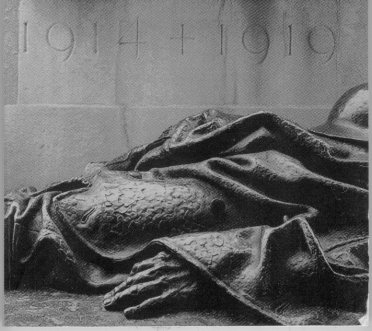
And on the eleventh hour of the eleventh day of the eleventh month, in the year 1918 the guns of the Western Front finally went silent and the human carnage of the First World War came to a close – yet results of the war would stay with us, like a bacillus, for decades to come.
Far from being the War to End All Wars, it instead set the world up for decades of pain to come.
Britain and Germany were bankrupted, and the war debts of all combatants would infect western economies for years to come, until their final annihilation in German hyperinflation, the collapse of the classical gold standard, and the maw of the worldwide Great Depression.
The Bolshevik takeover of Russia was still in place at the Armistice, a wartime piece of German treachery that eventually enslaved around 300 million people – and whose eventual collapse we celebrated just two days ago.
The “state socialism” adopted by all the Great Powers in the war would come back to haunt them. Every big statist of the next generation, from Keynes to Herbert Hoover to FDR, learned their interventionism in the corridors of power they so loved so far behind the front lines.
And in the men in the German trenches were born the seeds of World War II: the march of the Nietzschean call to arms in defence of the Fatherland and its “blood and soil” began there; what Clemenceau called the “twenty-year ceasefire” that was the Versaille Treaty was bewailed there; and there too was the myth of Der Dolchstoß so exploited by the Nazis – that “good Germans” who were at the front still undefeated were stabbed in back by a surrender forced upon them by a coterie of Jews and other traitors in their rear echelons. It took the utter defeat of Germany twenty-seven years and 100 million lost souls later to finally lay these myths and tragedies to rest.
This last, the myth that the German surrender of November 1918 allowed to take hold, offers a lesson that needs to be learned and relearned: that to be lasting a defeat must be crushing, and must be seen to be crushing, as it finally was in World War II.
Lest we forget indeed. If truth is the first casualty of war, then the the memory of its lessons and of its unintended consequences must surely be the second.
[Image, by the way, is from Charles Sargeant Jagger's Artillery Monument at Hyde Park Corner, London.]
6 comments:
@ PC: I don't understand your historical analysis.
An example:
"This last (Good Germans were stabbed in the back), the myth that the German surrender of November 1918 allowed to take hold, offers a lesson that needs to be learned and relearned: that to be lasting a defeat must be crushing, and must be seen to be crushing, as it finally was in World War II."
WWI and the Spanish flu had devastated Europe.
The Germans revolted, the Kaiser abdicated and Germany surrendered.
You state earlier: "The war debts would infect western economies for years to come"
It was this lack of magnanimity by the victors that created the environment where Hitler came to power.
How would a more crushing defeat have prevented Hitler and his delusions?
@ Monsieur: I recommend you follow the links I provided on each of those points.
@ PC: I read your links.
There is no discussion there about the German/Austrian defeat after WWI.
My question stands.
How would a more crushing defeat have prevented Hitler and his delusions?
to be lasting a defeat must be crushing, and must be seen to be crushing,
And yet you seem to think that nuking Iran and Palestine and executing all members of the Labour party is not good policy. Please explain.
Monsieur
You might read Chapter 7 of Mein Kampf.
Summary being Hitler thought Germany was defeated in WW1 through years of clever use of Allied propaganda which undermined the internal cohesion of Germany. Then final betray by political rabble, Marx’s & Jews. Hitler goes to some lengths to explain how successful throughout the war the German army was. All types of crap. Hitler concludes chapter 7 by saying how WW1 was ended motivated his decision to enter politics. Injustices or otherwise of the victors doesn’t come in to it.
Though of course had the Germany been militarily occupied during 1919 Hitler would have a come up with a lot of other bollocks (he was a socialist war monger) but Hitler’s views on how WW1 ended and the German army were widely held in Germany.
Also an Allied occupation of Germany would have put down the Commies and not seen the rise of German nationalist left wing parties like the German Labor Party (Nazis) which like so many others formed largely in response to the German commies.
@ Simon: I'm not going to read Mien Kampf.
And I'm not going to blame the problems that Germany had during the interwar period on the Jews or the Communists, like Hitler did.
That would be "Der Dolchstoß"
Post a Comment